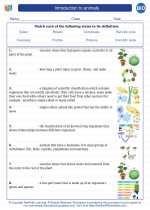Helminths: Study Guide
Helminths are a group of parasitic worms that can infect humans and animals. They are classified into three main groups: nematodes (roundworms), cestodes (tapeworms), and trematodes (flukes). These parasites can cause a range of diseases and health issues in their hosts.
Nematodes (Roundworms)
Nematodes are the most abundant and diverse group of helminths. They have a cylindrical body with a pointed head and a digestive system. Some common nematode infections in humans include:
- Ascariasis (caused by Ascaris lumbricoides)
- Hookworm infection (caused by Ancylostoma duodenale and Necator americanus)
- Trichinellosis (caused by Trichinella spiralis)
Cestodes (Tapeworms)
Cestodes are long, flat parasites that live in the digestive tract of their hosts. They have a unique structure with a scolex (head) that attaches to the host's intestinal wall and a series of proglottids (segments) that contain reproductive organs. Common cestode infections include:
- Taeniasis (caused by Taenia spp.)
- Echinococcosis (caused by Echinococcus granulosus and Echinococcus multilocularis)
Trematodes (Flukes)
Trematodes are leaf-shaped parasites that can infect various organs in their hosts, including the liver, lungs, and intestines. They have complex life cycles involving intermediate hosts such as snails and fish. Common trematode infections include:
- Schistosomiasis (caused by Schistosoma spp.)
- Fascioliasis (caused by Fasciola hepatica)
Transmission and Prevention
Helminth infections are often transmitted through contaminated food, water, or soil, as well as through close contact with infected individuals or animals. Prevention strategies include practicing good hygiene, proper sanitation, and avoiding consumption of undercooked meat or contaminated water.
Diagnostic Methods
Diagnosis of helminth infections typically involves microscopic examination of stool samples to detect parasite eggs or larvae. In some cases, serological tests or imaging studies may also be used to confirm the presence of these parasites.
Treatment and Control
Antiparasitic medications are commonly used to treat helminth infections. Treatment regimens may vary depending on the type of parasite and the severity of the infection. In addition to treatment, controlling the spread of helminths involves deworming programs, vector control, and public health education.
Impact on Public Health
Helminth infections can have significant impacts on public health, particularly in developing countries with poor sanitation and limited access to healthcare. These parasites can cause malnutrition, anemia, organ damage, and impaired physical and cognitive development, especially in children.
Understanding the biology, transmission, and control of helminths is essential for effective prevention and management of these parasitic infections.
.◂Biology Worksheets and Study Guides High School. Introduction to animals
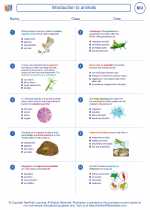
 Worksheet/Answer key
Worksheet/Answer key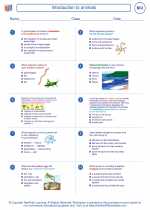
 Worksheet/Answer key
Worksheet/Answer key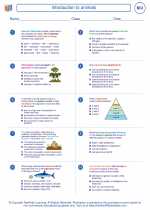
 Worksheet/Answer key
Worksheet/Answer key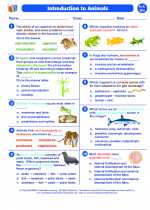
 Vocabulary/Answer key
Vocabulary/Answer key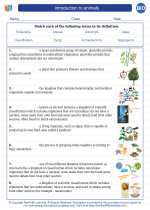
 Vocabulary/Answer key
Vocabulary/Answer key
 Vocabulary/Answer key
Vocabulary/Answer key